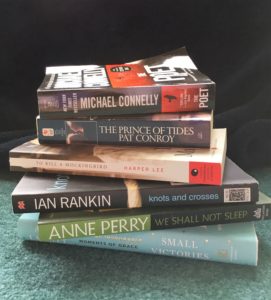Book reviews. A common plea or question I’ve seen recently on numerous websites and Facebook reader/writer sites involve authors asking readers, in the kindest way, to please go on GoodReads or Amazon (online) or Barnes and Noble (online) and write reviews of their books. I, myself, have been doing some of that asking because the last statistic I read about how many books a day are being published is 900, or 310,000 a year (by Bowker for 2013). In that huge, impossible field, how can authors make their books stand out? And if you—the readers—like or even dislike their books, why not take a few minutes to share your feelings with other readers?
The How Come?
Well, perhaps you don’t have the time, or your e-book reader is full and moaning, or you aren’t sure what to say, or you  don’t want to leave a bad review. I can’t help you with the first two problems; however, I can mention a few things about bad reviews, as well as suggest a few book elements you might consider.
don’t want to leave a bad review. I can’t help you with the first two problems; however, I can mention a few things about bad reviews, as well as suggest a few book elements you might consider.
Every author I’ve known has received bad reviews at one time or another. As a writer, I never take bad reviews personally. Reading is a very subjective sport, and not everyone is going to like what I’ve written or even be interested in my topic. A bad review often makes me think about what a reader has said and consider the possibility that it might help me. One of the reviews for my mystery, Three May Keep a Secret, said that my book seemed to be for an audience older than the reviewer’s twenty-something self, and so she didn’t care for my book. Two stars out of five. She was right: usually my audience is fifty and older. That’s fine, and I understand why she felt that way. On the bright side, it also points out to other readers that they might like my book if they’re part of the senior crowd.
Potential buyers read reviews about vacuum cleaners, new laptops, recent vehicles, and … books. Reviews help sell all of those. Book reviews may make the difference between a venue doing more advertising for that book (such as Amazon), or publishers picking up a series. This means that if you want to keep your favorite writers writing, you can help them with reviews. This is especially true for those of us locked out of many venues because we are not “New York Times Best-Selling Authors.” Those people had to begin somewhere, too.
The How To
So, that is the “How Come” of reviews; now, how about the “How To” of reviews?
 The first thing you might ask yourself is “What did I like or dislike about this book?” That is a good place to start, and a couple of sentences will suffice. If that seems too vague, consider some of these possibilities, but you don’t have to write about all of them:
The first thing you might ask yourself is “What did I like or dislike about this book?” That is a good place to start, and a couple of sentences will suffice. If that seems too vague, consider some of these possibilities, but you don’t have to write about all of them:
The plot: How was the pace of the plot? Did it keep your interest? Did it sag in the middle (often a problem)? Did it confuse you? Did you stay up all night reading because you couldn’t put the book down?
The conflict: This goes along with the pacing of the plot. A good book has conflict(s) that move the story along. Often subplots with their own conflicts tie into main plots. Did the author seem to make this work well? Did the conflict keep you reading? Were the various subplots finished to your satisfaction? Did the book solve the main conflict?
The point of view: Did the writer choose the right person(s) to tell the story? Or did the story seem to hop from one person to another so you couldn’t tell who was talking? If the writer told the story from his/her own point of view, did that seem like the best way to do it?
The characters: What did you think of the characters, especially the main characters? Like them? Hate them? Feel sorry for them? Root for them? Did the characters seem like real people or more than just stereotypes? Were they well-rounded? Did the author dump a lot of character back story that slowed down the plot? What about the characters’ motives? Did you believe that Joe decided not to marry Sally because he wanted to go into the army instead? (I tend to like at least one character I can root for, and a recent best-seller left me cold because everyone in it was a nasty, malicious person. On the other hand, you might like a book with lots of evil characters.)
 The setting: Was it supposed to be real? Imaginary? Did it work with the story and was it described so you could almost see it, smell it and feel it? Did too much description slow down the plot?
The setting: Was it supposed to be real? Imaginary? Did it work with the story and was it described so you could almost see it, smell it and feel it? Did too much description slow down the plot?
What do you think? Is this enough to get you started? Just pick a question or two that makes sense with the book you read. You might make some positive comments as well as some negative comments. I often have conflicting feelings about a book I’ve read. The important thing is that you consider writing a review, however brief. Use a different name if you want, like “lifetime reader” or “Simple Simon” or “Girl with a Book Tattoo.” The writer you save may be the one you like best!

Thanks for this, Susan. I have to write a review for a friend, and this helped me get some perspective. Of course, I love her, and I want to say it was brilliant, but it was just good. Now, I know what to say, but how many stars do I give it? She’ll be waiting to see my review.
Hi, Barbara Allyn (What a wonderful name–based on the song?) I have been in your position before and felt much as you do. I ended up using a 4/5. I tend to reserve 5 for books I love like “The Great Gatsby” or “Huckleberry Finn.” So, I think that’s a decent explanation. Most of us writers don’t figure we’ll compare equally with classics like those. I tend to think of four as “good,” 3 as “average.” Her book wasn’t average, but it might not have been “The Great Gatsby.” My guess is she’ll understand. Thanks for stopping by!
I hate the star system, hate rating my pain from one to ten, and hate grades or having to give them out. That being said, I think making a narrative work is about the hardest job in the world. What makes it work are on your list above. There are actually five of them. So I think you could use them as a device for constructive criticism. Serious authors are anxious to get it.
Thank you for your thoughts on this. I suppose numbers of stars are an attempt to make something terribly subjective more objective. I often think of that, even with big award shows like the Oscars. How can you compare apples and oranges? In putting up these thoughts, I was trying to utilize some of the basic principles of writing narratives. And yes, I do use these ideas for constructive criticism. I’m going to be mentoring another writer this summer by using these very principles on her/his manuscript through Mystery Writers of America. I hope some of these questions will help readers think about the structure of books and how complicated (as you say) it is to make all of the parts come together.
I think rating systems discourage process. I’m a classical musician and the most meaningful lesson I ever learned came from a wise teacher who said if you don’t like the work don’t do it. Because it is not about getting up on the stage. It’s about engaging the process. The moments of glory are few. I apply that to writing as well. I enjoy the process and now that i’m too old to sing words (yes, opera singer) I have the joy of writing them.
What a wonderful point of view you have about creativity.
I use CAMEL for choosing great books to suggest on my book review blog. This acronym mirrors your categories. Wish I could track where I found CAMEL but C= Complex characters; A=Ambiguity in the plots (not predictable); M=Meaty themes; E=Exciting Settings; and L= Language and Literary Devices. Hope you find this acronym useful!
I’d never heard of this before, Beth. What a great idea for choosing books to enjoy. Thanks for sharing.